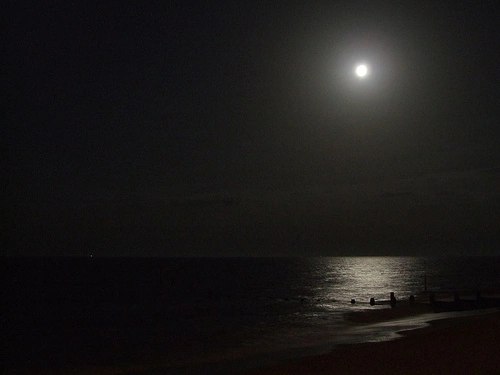Corona
Aus der Hand frißt der Herbst mir sein Blatt: wir sind Freunde.
Wir schälen die Zeit aus den Nüssen und lehren sie gehn:
die Zeit kehrt zurück in die Schale.
Im Spiegel ist Sonntag,
im Traum wird geschlafen,
der Mund redet wahr.
Mein Aug steigt hinab zum Geschlecht der Geliebten:
wir sehen uns an,
wir sagen uns Dunkles,
wir lieben einander wie Mohn und Gedächtnis,
wir schlafen wie Wein in den Muscheln,
wie das Meer im Blutstrahl des Mondes.
Wir stehen umschlungen im Fenster, sie sehen uns zu von der Straße:
es ist Zeit, daß man weiß!
Es ist Zeit, daß der Stein sich zu blühen bequemt,
daß der Unrast ein Herz schlägt.
Es ist Zeit, daß es Zeit wird.
Es ist Zeit.
Paul Celan (b. 23 November 1920)
Corona
Autumn eats its leaf out of my hand: we are friends.
From the nuts we shell time and we teach it to walk:
then time returns to the shell.
In the mirror it’s Sunday,
in dream there is room for sleeping,
our mouths speak the truth.
My eye moves down to the sex of my loved one:
we look at each other,
we exchange dark words,
we love each other like poppy and recollection,
we sleep like wine in the conches,
like the sea in the moon’s blood ray.
We stand by the window embracing, and people
look up from the street:
it is time they knew!
It is time the stone made an effort to flower,
time unrest had a beating heart.
It is time it were time.
It is time.
Translated by Michael Hamburger
Photo credit: Moon, sea, groyne, beach by mole-volio

wir sagen uns Dunkles/ This line should be more like “we say our vagueries”
The poem and this verse especially is about the return of love. Later he says
Es ist Zeit, das es Zeit wird. “It is time it were time”. Time for what? Not dark
words. Though I’m convinced Celan’s use of dark imagy is not as thoroughly
negative as commentators in the west may think. Still we need a better word
than “dark”. More like sweet.In the vert next line he says wir lieben..”we love”.
The words “exchanged” are words of love, soft and sweet, like something ripe.
Something ready now like wine.
Michael–This really is a great point you’ve raised and I do like your reading of dunkels in this context–thanks very much for your comment. Do you have a complete translation of the poem?
I hope to return to this poem in the near future.
one of the finest poems in any language!
great to find it here!
“Dunkel” in Germanic languages can also mean “mysterious” or “obscure” as well as “half-dark” (“dark” is darker than “dunkel” so to speak). It looses these connotations upon translation – but I’m not sure that can be avoided.
You are all wrong and completely misunderstanding of his poetry.
Please shut up!